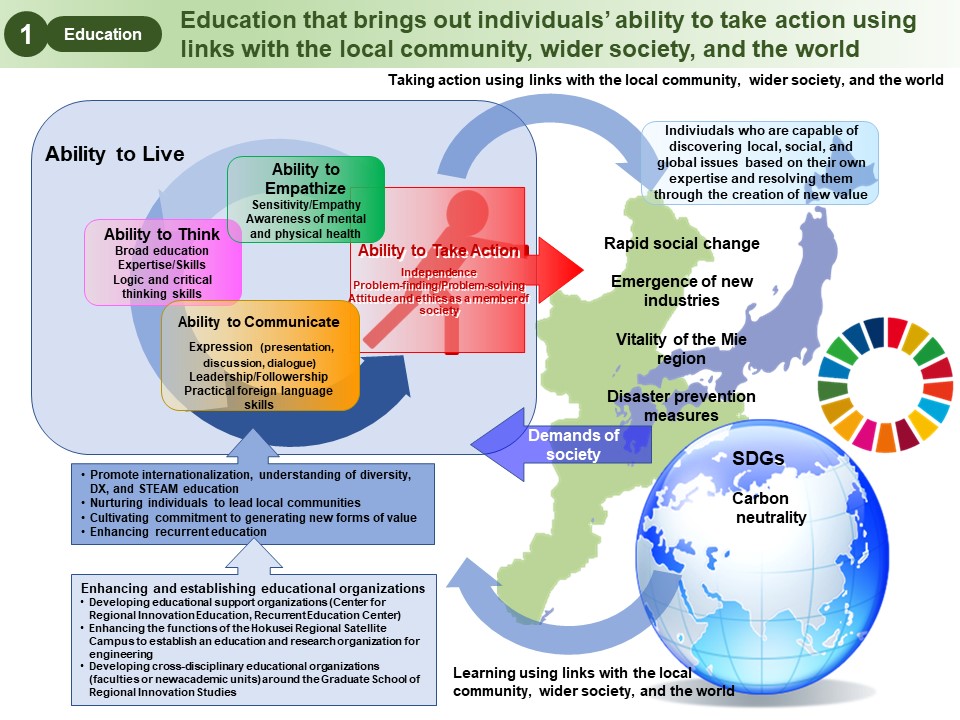Education
According to the recommendations of the Council for the Creation of Future Education, the individuals who will support the future will be those who "can pursue what they love and acquire a high level of expertise and technical skills, set their own agenda, delve deeply into their ideas, communicate with diverse people, create new values and visions, and resolve social issues."
Mie University students are typically recognized by industry and other sectors of society to be honest, cooperative, reliable, and agreeable. While further developing these positive qualities of Mie University students, we have also established an educational vision that emphasizes creativity, independence, and proactivity, and brings out their "ability to take action" through connections with the community, society, and the world.
The "four abilities" that Mie University upholds as its educational goals will be reconfigured by adding the "ability to take action" to the "ability to empathize," "ability to think," and "ability to communicate," with the "ability to live" as a comprehensive ability embracing all four abilities. We will cultivate individuals who understand diversity and hold a global perspective, and who can take action on the world stage, through international exchange and by confronting local issues.
To this end, we will take the following steps:
1) We will engage the regional base satellite as a place of education, encouraging students to actively participate in activities that contribute to the community and providing education that will further deepen their connection with the community, to enable students to lead the community through their ability to take action.
2) We will enhance the functions of the Hokusei Regional Satellite Campus and develop education and research organizations in engineering and related fields, and promptly develop cross-disciplinary educational organizations (faculties or new academic units) through the Graduate School of Regional Innovation Studies.
3) We will implement STEAM education, arts and science fusion education, entrepreneurship education, and career education to foster individuals who can think and act independently to solve issues facing Japanese society and local communities with an awareness of the SDGs' commitment to "a sustainable society where no one is left behind," and who can become leaders of community-based innovation and value creation. In addition, we will provide education that cultivates the ability to discover and resolve social issues independently through the introduction of project-based classes as a preparatory process for working adults.
4) The university of the future will be required to nurture young people who can play an active role in society, and also to provide recurrent education to update the knowledge and skills of working adults in order to meet the needs of a rapidly changing society. Therefore, Mie University will establish a solid recurrent education organization by 2030 to meet the needs of working adults who wish to acquire new knowledge and skills, which will operate in parallel with the existing educational organization of undergraduate and graduate schools.
5) To address the declining population of 18-year-old university entrants in the region, we will promote pre-entrance training through cooperation with high schools and conduct entrance examinations using "inquiry" activities to attract local students who are willing to act on their own and cultivate indiviudals who can contribute to Mie and the surrounding region.


